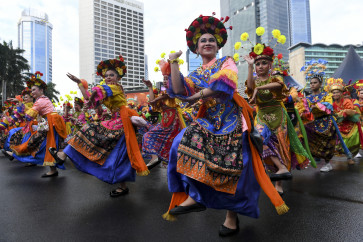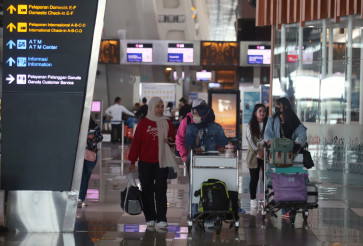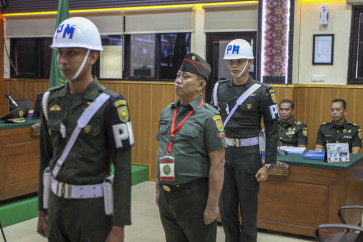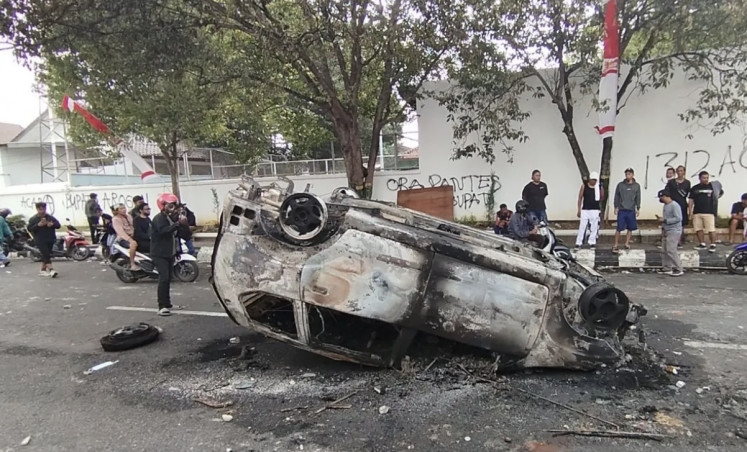Popular Reads
Top Results
Can't find what you're looking for?
View all search resultsPopular Reads
Top Results
Can't find what you're looking for?
View all search resultsLetters: Police ethics and Susno Duadji
I refer to the recent reports in The Jakarta Post regarding the possible police disciplinary hearing for Gen
Change text size
Gift Premium Articles
to Anyone
I
refer to the recent reports in The Jakarta Post regarding the possible police disciplinary hearing for Gen. Susno Duadji on the grounds that he may have breached the police code of ethics by giving evidence at the trial of Antasari Azhar.
I am sure that, like me, many other readers will have been positively dumbstruck to learn that the Indonesian police actually have a code of ethics.
Assuming this code really dictates approved police behavior, all sorts of intriguing possibilities surely suggest themselves as to just what this code might contain, given the seemingly widely accepted and much publicized view of the Indonesian people that the police are, in fact, one of this country’s most corrupt institutions.
Can it be that the police have adopted the Ten Commandants as their code of ethics but inadvertently or otherwise left out the word “not” in each of those commandants? Alternatively, perhaps the police code of ethics is like the Mafia’s code of silence, which mandates any and all wrongdoing so long as one does not inform on fellow mafiosi?
Certainly, most Indonesians are likely to have great difficulty keeping a straight face while using the expressions “code of ethics” and “police” in the same sentence. Indeed, this would almost seem to be an oxymoron as far as the general Indonesian public is concerned.
On a slightly more serious note, it would seem reasonable to ask why the code is only now being raised, when Susno has, apparently, become something of an embarrassment to the Indonesian police.
Where was this code of ethics over the past six months and during the height of the KPK debacle with its almost daily revelations of suspected police wrongdoing?
Is it really the case that the most serious violation of the police code of ethics that can be leveled against the former chief of detectives is that he gave evidence at a trial without his superior’s approval?
This must certainly all seem quite counterintuitive, not to say unbelievable, to observers of recent events involving the Indonesian police.
Although it is hard to feel too sorry for Susno in his current predicament, it seems plausible that the real purpose of the code is not actually to regulate wrongdoing by police officers at all, but rather to provide a convenient means of dealing with officers who become a liability to their superiors and are not willing to go quietly.
A cynic might say that the apparently very selective enforcement of the code in the case of Susno is rather like being told that a Tanah Abang pickpocket is to be disciplined for breaching the pickpockets’ code of ethics, which prohibits pickpockets from robbing more than every second passenger on a public bus, or that a Kalimantan illegal logger is to be disciplined for breaching the illegal loggers’ code of ethics, which prohibits pillaging the forests unless you use “made in Indonesia” chainsaws and axes.
Alice in Wonderland would certainly feel very much at home with the code of ethics of the Indonesian police and its application in the case of Susno.
William A. Sullivan
Jakarta










